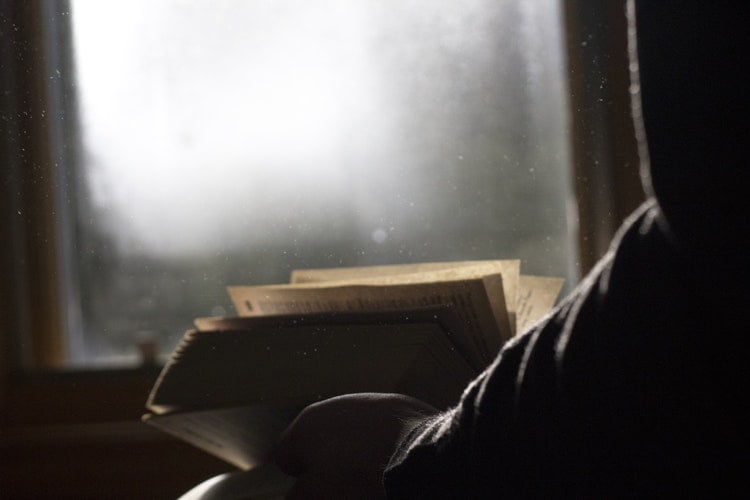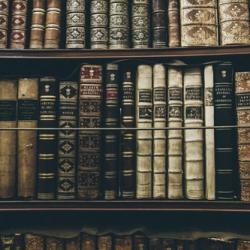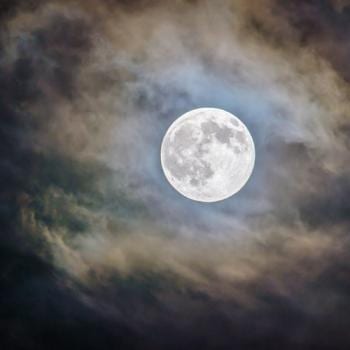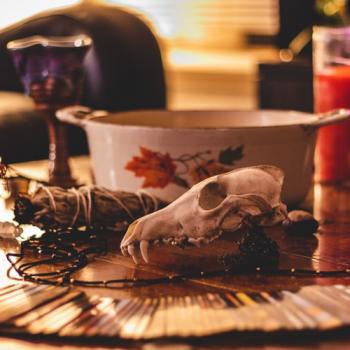How important is it to read Witchcraft history? Well, if you identify as a Witch than I would say it’s extremely important. But first, let me admit that I’m totally biased. Reading, in general, is one of my absolute favorite things to do. Books will forever be one the greatest loves of my life. Appreciation for literacy is encoded in my family’s DNA. My grandma worked in a library and my mom taught me to read at a very young age. Of course, my favorite books have always been those about Witches and magic. Today, the majority of the books I read pertain to the history and folklore of Witchcraft. I find that researching into the past and learning the stories of our Craft legacy is a magical act in itself and its one that should not be overlooked. However, not all Witches share these feelings.
Last week fellow Patheos Pagan blogger Astrea Taylor posed the question of how important is it to learn Pagan/Occult history? According to my understanding of Taylor’s article. she leans more towards an experiential learning process – going out and doing the thing vs. reading about the thing. Why get bogged down in stories about the past when you can be living in the present? While she acknowledges the importance of history she states that, “In my humble opinion, you don’t have to be well-read on pagan history to be a good pagan/witch.” [In this article I will specifically be talking about the practice of Witchcraft, including Wicca.]
While I respect and agree with certain aspects of Taylor’s perspective, I can’t say that it completely aligns with my own thoughts and feelings. In my opinion, if someone is going to practice Witchcraft, they need to have a well rounded understanding of history. Why? Well for one, context. Our practices were not created in a vacuum but rather they have evolved from a long-standing narrative of Witchcraft and magic. By looking into the history and folklore of Witchcraft we are able to learn the context surrounding what it is that we do. What are we doing? Why are we doing it? Knowing the history behind our Craft gives it a layer of depth that ultimately enhances our magic. Personally, I want to know the history behind whatever it is I’m doing.

Reading Witchcraft history and folklore is also important in that it’s a place where we can learn new beliefs and practices altogether. Traditional Witchcraft is based upon history and folklore – we pull inspiration and influence from the past and bring them into our modern lives. When I read historical texts, such as the trial records, I’m scouring for useful bits of lore – like spells and charms – that can then be adapted and used in my practice. While reading I’m also attempting to identify important life lessons. What can I learn from the experiences of the Witches and Pagans who came before me? For example, when I read about Doreen Valiente I learn about being critical, sharp-witted, and courageous. By reading her works and about her life I get to see the Craft from her perspective which reveals valuable insights and truths.
This brings me to another point, that our Craft ancestors are undeniably important. Simply put, if not for their contributions and sacrifices, who knows where we would be? Sure, modern Witchcraft would still exist if Gerald Gardner hadn’t come forward with Wicca – but who knows what it would like? Our practices would surely be quite different if hadn’t been for the work of Robert Cochrane and Cecil Williamson. Even relatively modern Witches like Laurie Cabot and Silver Ravenwolf have played intrinsic roles in paving the way for us to be able to identify and practice Witchcraft openly and safely (I recognize that this is not always true depending upon where you live, but it’s a lot better than it could be or has been in the past). Reading the stories of these people honors their memory and helps keep their history – our history – alive and thriving.

All that being said, I think it needs to be acknowledged that the ability to read and having access to books is a form of privilege. Unfortunately there are many people who, for various reasons, are unable to receive the education necessary for attaining literacy skills. Furthermore, there are many people who have difficulties with learning – including reading. Having the means to obtain books is another factor – they cost money and you may live in an area where quality books on Witchcraft are no where to be found. Libraries can be helpful but if you live in a small town, you are less likely to find even a modest Occult section. My local library doesn’t carry any books on the subject of Witchcraft or magic – history or modern practice.
Ultimately no one should be judged based on what books they have or haven’t read. There are many ways to be a Witch and I would say that – although it pains my inner bibliophile – books can only take you so far. Like all things, the practice of Witchcraft falls on a spectrum of book-learning and experiential-learning. At one extreme there are people who are practicing Witchcraft but without having knowledge of it’s deep historical roots. At the other extreme are those who are referred to as “arm-chair Occultists,” who skimp on getting their hands dirty and lack the practical experience. I believe it’s best to center yourself in the middle of that spectrum however you are able.












